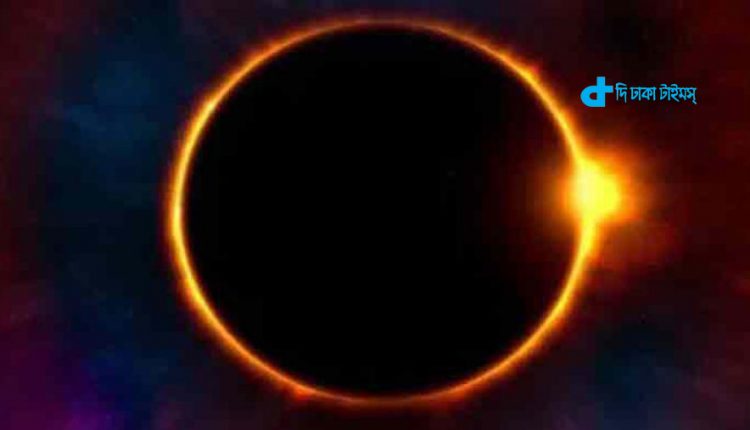The Dhaka Times Desk The world is about to see a rare solar eclipse after 172 years. This solar eclipse will take place on December 26. At this time there will be a ring of fire around the sun. Scientists call it 'Ring of Fire'.

The world is about to witness a rare solar eclipse after 172 years, space scientists said. This solar eclipse will take place on December 26. At this time there will be a ring of fire around the sun. Scientists call it 'Ring of Fire'.
According to space scientists, such an amazing cosmic scene like solar eclipse will last for two and a half hours. During this time, the Moon will cover more than 90 percent of the Sun, which can be observed by Earthlings with the naked eye. This solar eclipse can also be seen from Europe, Asia, Australia, East Africa countries. However, this view is best seen from the UAE.
Scientists believe that this will be the last solar eclipse of 2019. Two other solar eclipses took place this year on January 6 and July 2. However, they were not visible to the people of the subcontinental region.
Scientists say that solar eclipse is known from the Babylonian civilization. When the Moon comes between the Earth and the Sun for a period of time in transit, the Sun becomes partially or completely invisible to an observer on Earth. This event is called solar eclipse. But this happens more often when the new moon rises after the new moon. At least 2 to 5 solar eclipses are observed on Earth every year. Two of these eclipses turned into total eclipses.
In this regard, scientists say that during a total solar eclipse, the darkness of the day and night suddenly decreases and there is a sudden change in the natural environment around. Then the birds return to the forest with the glimpse of evening, the wind settles and the temperature suddenly drops.
Scientists say that solar eclipses happen more often than lunar eclipses. The ratio of solar and lunar eclipses in every 7 eclipses is 5:2 or 4:3. However, most of the solar eclipses are not visible if they pass over sea level or mountains, scientists said.


